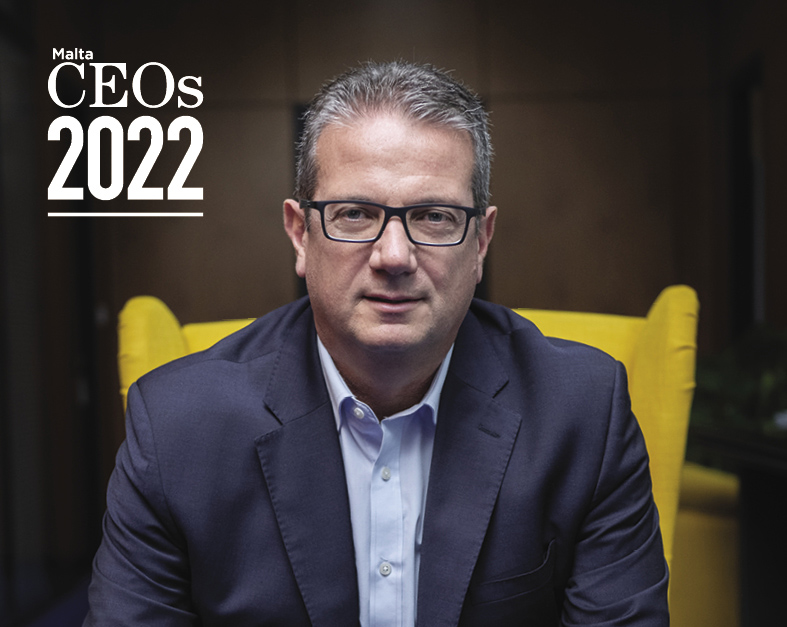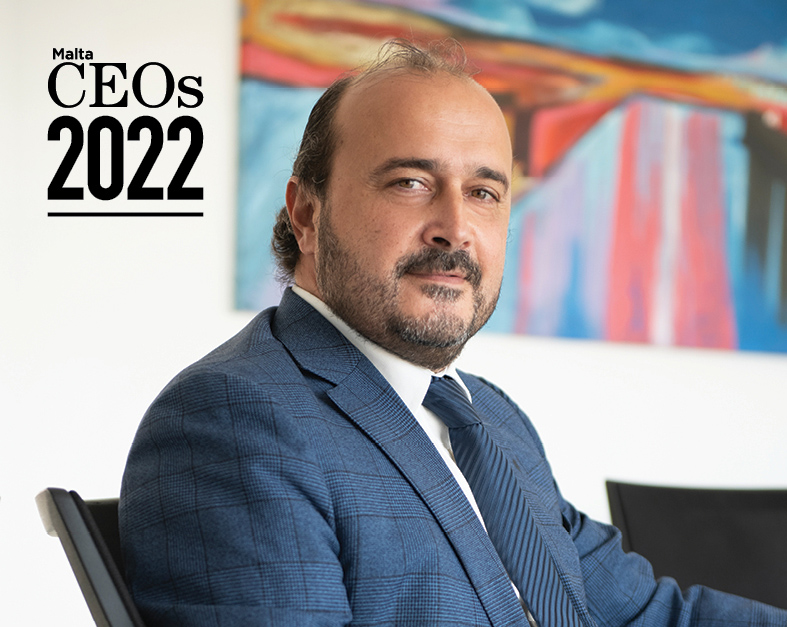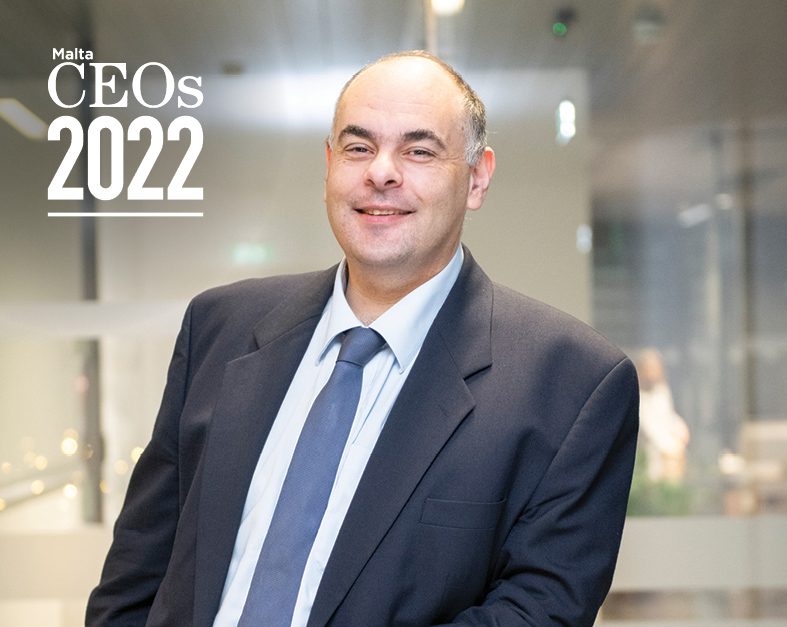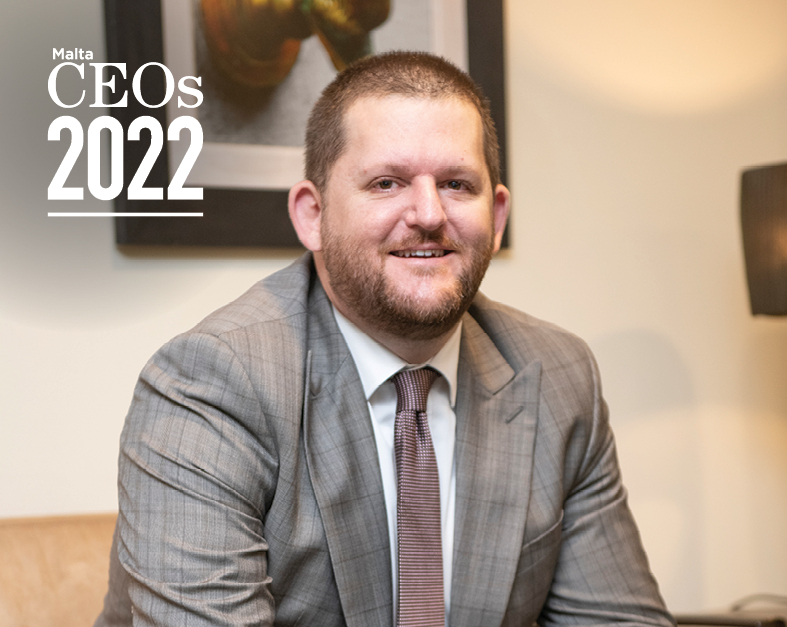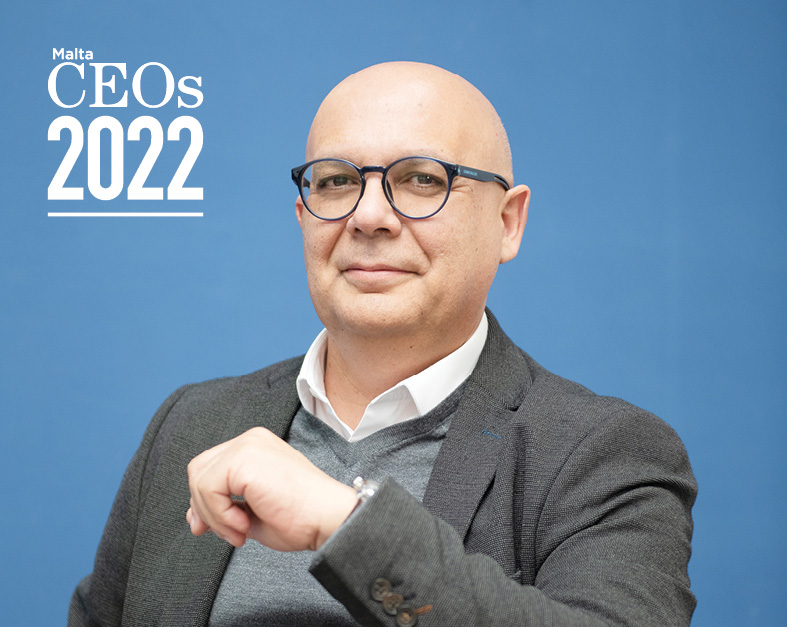Established in 2008 as a subsidiary of Attard & Co Industrial Ltd, T4B Services offers a range of products and services within the fields of engineering and technology. At its helm, CEO Patrick Spiteri Staines has been with the Attard & Co Group for over 27 years. Having steered the company through troubled waters over the past couple of years, Patrick is determined to keep the company active and dynamic, with an eye on the future.
Patrick Spiteri Staines has dedicated his career to exploring how engineering relates to buildings. An electrical engineering graduate who completed a Master’s degree in Sustainable Energy, he became a Registered Energy Auditor with the Regulator for Energy and Water in 2015. He also took on the role of Energy Building Assessor around this time, meaning he is authorised to provide energy audits and issue energy performance certificates.
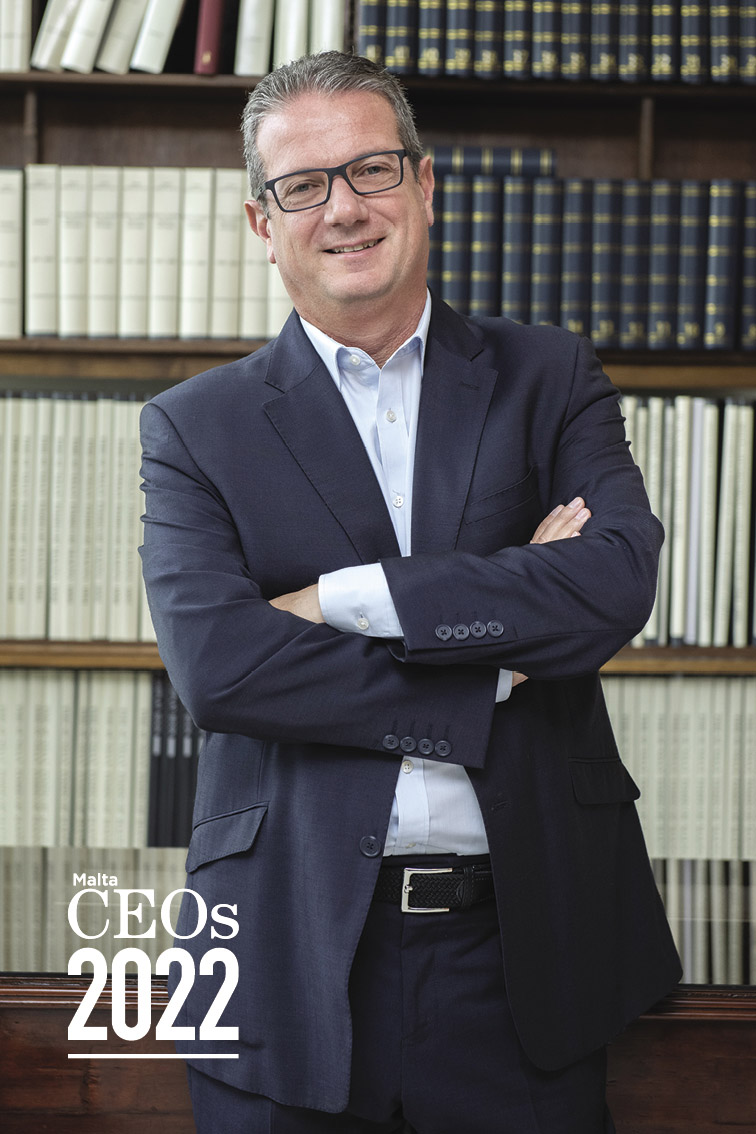
With a keen eye for improving energy use in buildings, Patrick counts industrial supplies, equipment, and energy efficiency among T4B Services’ main areas of focus today. When Patrick joined the company in 1994, Attard & Co was developing industrial products and solutions. As the company grew further into the building materials sector, the Group decided to create its own subsidiary, forming T4B Services. “The name means ‘Technology for Buildings’,” the CEO explains.
“Over my 27 years, there have been many changes in the organisation, and we’ve continued to grow in this sector,” Patrick shares. “We currently focus a lot on technology – we see it as the way forward.” By technology, the CEO is referring to solutions for both buildings and industry. “We focus on choosing the right technology, which is good for both our clients and the environment in Malta,” he continues, lamenting that, locally, businesses do not always make these considerations.
“Most products are manufactured overseas for different markets – markets that are larger and have different geographic situations. Especially with building materials, we see that they are not always ideal for use in Malta. This is where we come in. We select technologies compatible with the local landscape. Even in the industrial sector – we look at the size of our market and our clients’ needs,” he says.
Describing T4B Services’ main areas of focus, which include energy efficiency and services related to cooling, Patrick says that his underlying ethos is sustainability. “This is something I really believe in; not just the sustainability of a company from an economic point of view, but also an environmental one. After all, if you are using less energy, you are more cost-effective, and you are also reducing the harm to the environment,” he maintains.
While construction and the environment are often seen as two separate areas, the CEO believes that this is changing, with greater awareness of sustainable building solutions slowly gaining traction on the islands. “Something that many people don’t realise is that, once you build a building, it’s there for many years. If you’ve built it in a wasteful manner, or a manner that requires residents to use a lot of energy, you’re stuck with it. In my experience, it’s very difficult to retrofit solutions. Now things are changing, even in industry, and people are becoming more aware of their energy use and how they can waste less. We’re hoping that this accelerates,” he shares.
Such is Patrick’s drive to affect change that, in 2020, T4B Services teamed up with the Malta Chamber to set up an Energy Efficiency and Conservation Committee, aimed at influencing national policy. “Although the Government is moving in this direction, it is moving slowly and may not always be moving the right way,” he explains. Using renewable energy as an example, Patrick describes the installation of solar panels as a good initiative but expresses his concern that the limited space available on the islands has not been properly considered.
“While other countries benefit from large expanses of land where they can install solar farms, in Malta, we are already reaching saturation,” he asserts. “We’ve copied models of solar farms used abroad and have not really considered that our areas are being underutilised.” The CEO adds that a solar panel generates electricity using 20 per cent of the sun’s energy, while the other 80 per cent, which is heat, is being wasted. “There are technologies today that combine the two, so that you can utilise the sun’s energy to generate both electricity and heat, which can then be used within the building to heat water or even to create cooling,” he says.
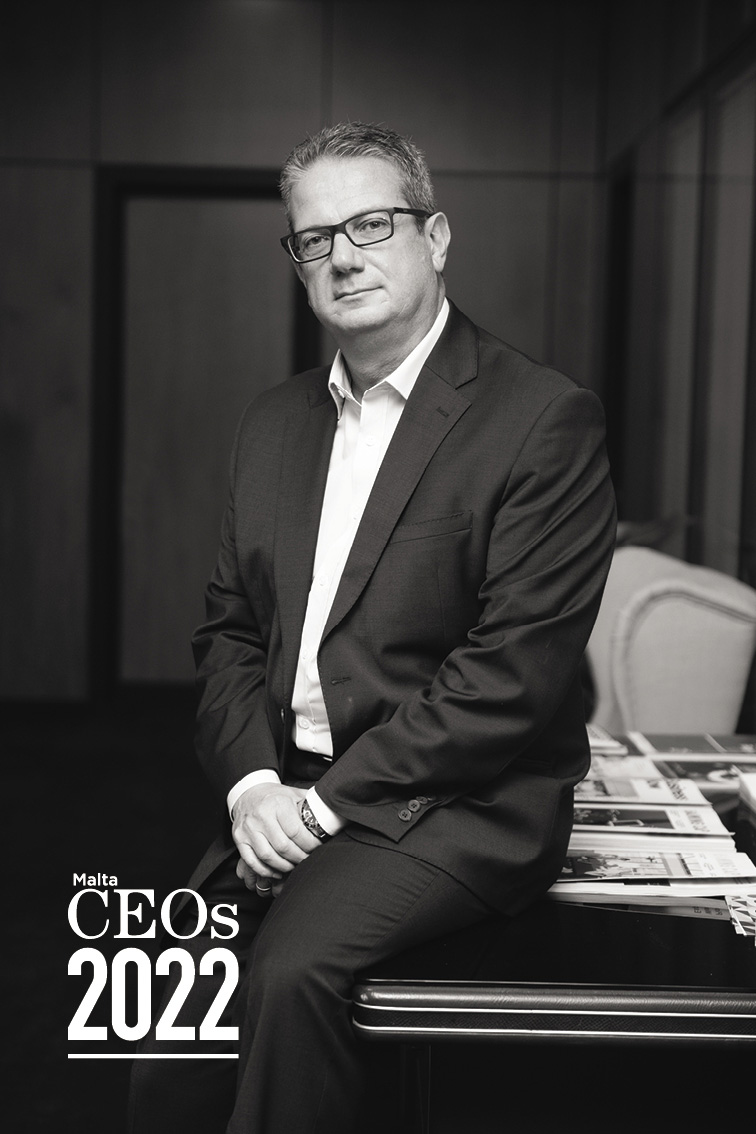
Along with the Energy Efficiency and Conservation Committee, Patrick is working to improve the incentives for industry to become greener and more energy efficient. “We’ve already seen a positive reaction, and some of our suggestions were taken up in the 2021 Budget. But we believe that more can be done.”
Shifting his focus to the pandemic, the CEO explains that, for T4B Services, the main issue was dealing with resulting global concerns in the industry. “The biggest issues were an increase in the price of materials, and massive problems with logistics. These have been a headache for us, and we had to react because we were struggling to serve our clients,” Patricks reveals, highlighting the need to increase warehouse space. “According to our indicators, the ‘new normal’ way of operating will remain with us for at least another year, if not more,” he confides.
Apart from changing the way the company takes care of its logistics, the CEO says that the pandemic also brought about an opportunity for T4B Services to accelerate its growth in the manufacturing sphere, being one of the least-hit areas by COVID-19. “We are focusing a lot on providing solutions to the industrial sector in Malta. Fundamental to this is the energy efficiency aspect,” he says, describing the company’s pivot as an acceleration on the industrial side of the business.
“The pandemic created direct and indirect opportunities,” Patrick continues. “In a direct way, I would say we became more aware of how fragile things are. You can be on a very stable course and then suddenly get hit by a hurricane.” The primary lesson from this, he notes, is the importance of building more resilience into your company, as well as introducing processes you can fall back on. “This was a good lesson, because it offered us the opportunity to make the company more stable, resilient and able to handle such ups and downs without suffering.”
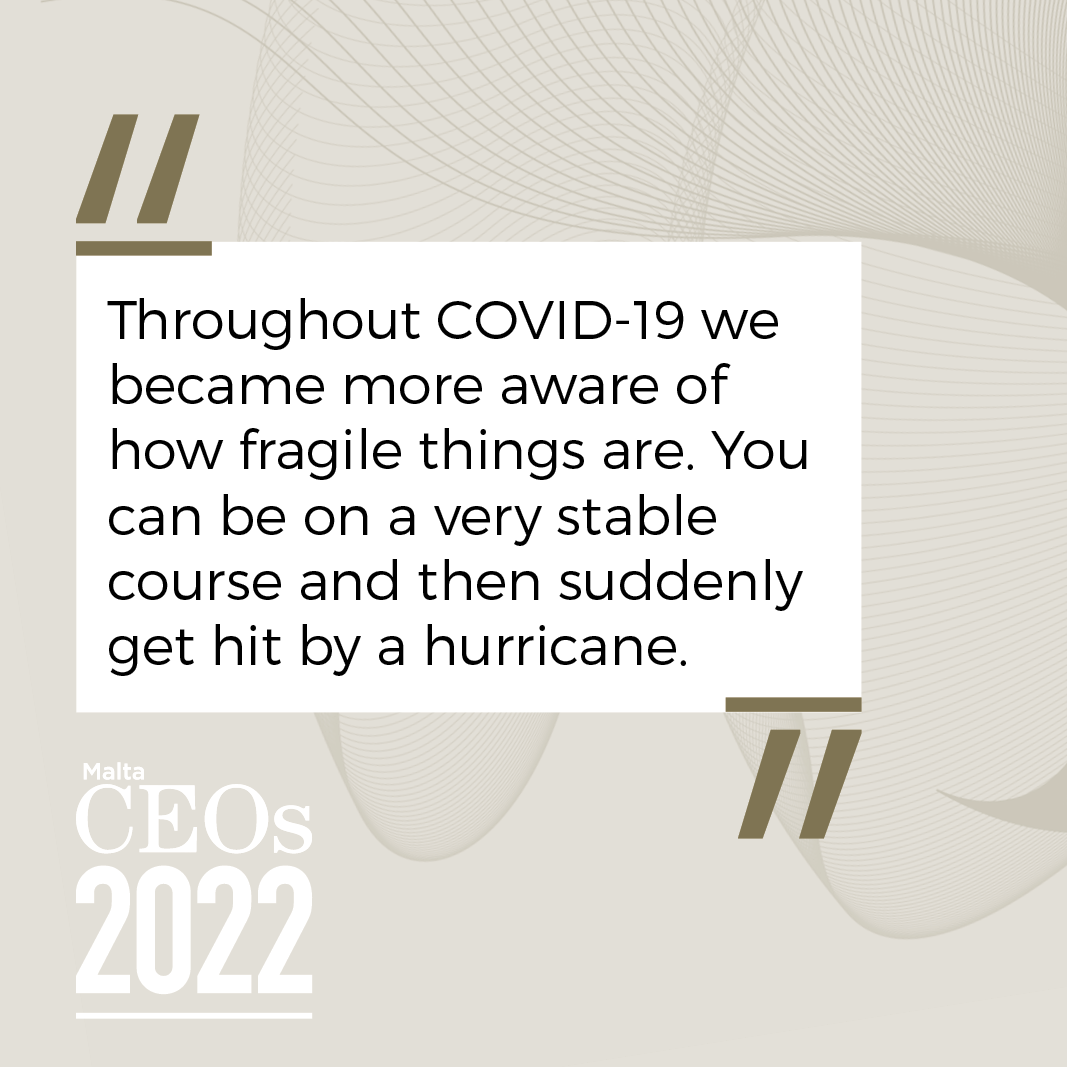
“After all, sustainability is the foundation for all businesses to flourish long-term. Energy efficiency brings about lower operational costs and, as a result, economic sustainability for the enterprise while also contributing to environmental improvements. It’s a win-win situation all round.”
Indirectly, the CEO considers the uptake of technology as worthy of mention. “We’ve seen a lot of interesting interactions, including company meetings and fairs held online, which has demonstrated to us how technology can make business interactions more efficient.”
While Patrick sees a slight slowdown in the building materials sector as a result of COVID-19, he believes the future is bright for the industrial aspect of the business, with several opportunities for growth. Looking ahead to 2022, he says, “I hope that we will be well-established with the provision of energy-saving equipment in the industrial sector. I also hope we see an uptake in renewable materials in the building sector by the end of the year.”
This article is part of the serialisation of 50 interviews featured in MaltaCEOs 2022 – an annual high-end publication bringing together some of the country’s most influential business leaders.
‘Networking is everything in our line of work’ – WES Trade CEO Alessio Bucaioni
MaltaCEOs 2022 serialisation: For seven years, WES Trade has helped an expansive range of clients internationalise their products and services.
‘Something can appear out of the blue and change everything’ – CEO Joseph Attard
MaltaCEOs 2022 serialisation: Unsurprisingly, given his technical background, Joseph’s approach is very hands-on.
‘Our key people help us provide the quality of service we expect’ – RiskCap CEO
MaltaCEOs 2022 serialisation: CEO Paul Magro counts building successful teams and opening an office in London among his achievement.
‘We’re the fourth busiest port in the Mediterranean’ – Malta Freeport Corporation CEO
MaltaCEOs 2022 serialisation: CEO David Magro is keenly aware of the responsibility his position carries.


